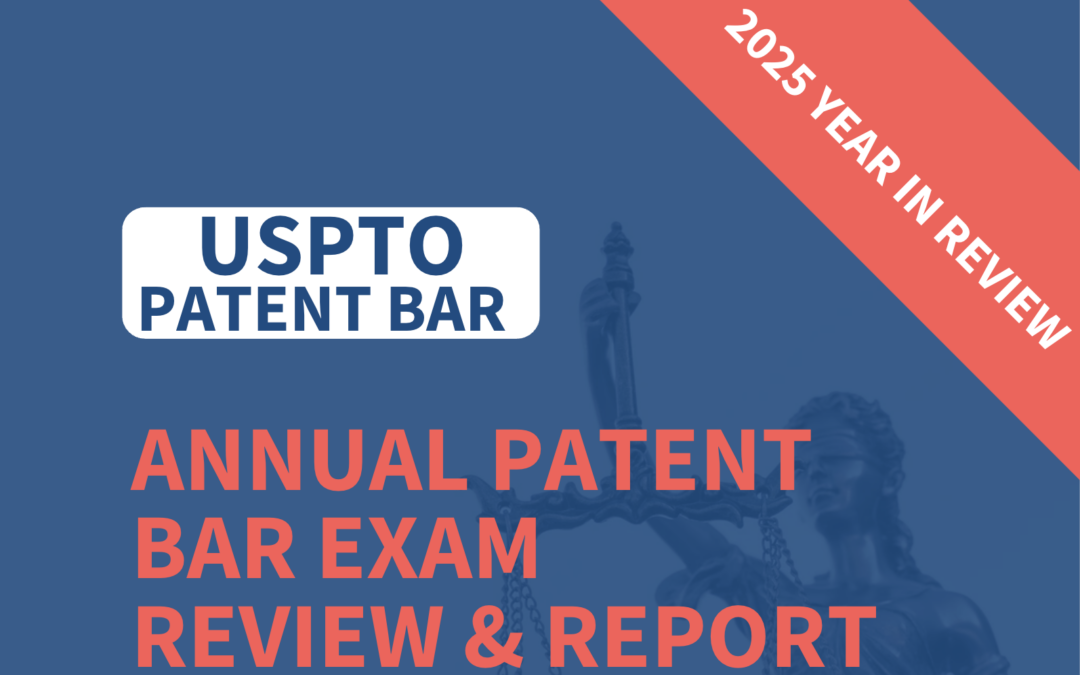Ever wondered if you could leap into the world of patents without a law degree? You’re not alone. The path to becoming a patent agent, someone who can file patents on behalf of inventors, is less traditional than you might think. This article will demystify the process of taking the patent bar without setting foot in law school.
Exploring the requirements and understanding the eligibility criteria can be overwhelming. But don’t worry, we’ve got you covered. Whether you’re a STEM graduate or someone with a deep interest in innovation and intellectual property, this guide will walk you through how to make your mark in the patent world, law degree or not.
Requirements for taking the patent bar
Embarking on a journey to become a patent agent without a law degree? You’re in the right place. The United States Patent and Trademark Office (USPTO) sets specific requirements for those aspiring to take the patent bar exam, making your law background optional, not mandatory. Here’s what you need to know.
Firstly, to sit for the patent bar exam, you must have a strong background in science or engineering. This prerequisite ensures that candidates possess the necessary technical expertise to understand and scrutinize patent applications effectively. The USPTO categorizes eligible degrees into three main groups:
- Category A includes degrees in engineering or physical science. If your degree falls under this category, your path is straightforward.
- Category B is for candidates without a degree directly listed in Category A but with a certain number of credits in science and engineering courses.
- Category C applies to those with practical engineering or scientific experience, requiring them to pass the Fundamentals of Engineering test as proof of technical proficiency.
Don’t have a Category A degree? Don’t worry. Many successful patent agents come from Category B, showing that alternate routes are both plausible and fruitful.
Proof of your educational background is crucial. You’ll need to submit transcripts and, if necessary, course descriptions to verify your eligibility under the desired category. For Category C candidates, passing the Fundamentals of Engineering test becomes a vital step, so preparing for this should not be overlooked.
Besides educational requirements, good moral character and reputation are also mandatory. The application includes a background check, aiming to confirm your integrity and reliability as a future patent practitioner.
Understanding these requirements is your first stride towards achieving your goal of taking the patent bar without a law school degree. While it might seem daunting at first, many have navigated this path successfully, proving it’s more than possible.
Understanding the eligibility criteria

Diving deep into whether you can take the patent bar without attending law school means grasping the eligibility criteria set by the United States Patent and Trademark Office (USPTO). It’s critical to understand the specifics to determine if you’re on the right track.
First and foremost, the USPTO requires candidates to have a solid foundation in science or engineering. This prerequisite exists to ensure that patent agents possess the necessary technical knowledge to comprehend and analyze patent applications. The acceptable degrees are categorized into three main groups:
- Category A: Includes bachelor’s degrees in recognized technical fields like biology, computer science, engineering, and physics. If your degree falls under this category, you’re automatically considered to possess the technical background necessary for the patent bar.
- Category B: For those whose degrees do not directly align with Category A, the USPTO considers applicants with sufficient coursework in science or engineering. This category requires a detailed breakdown of your coursework to prove it meets the USPTO’s standards.
- Category C: This is for applicants who don’t have a formal science or engineering background but have passed the Fundamentals of Engineering test, indicating they possess the technical knowledge required.
Besides the educational background, proving your moral character and reputation is a must. You’ll need to submit documentation confirming your good standing, which may include letters of recommendation or certifications from professionals in your field.
It’s also worth mentioning that work experience in a related field, while not a formal requirement, can significantly bolster your application. The USPTO reviews applications on a case-by-case basis, so demonstrating relevant experience could make a crucial difference if your educational background is unconventional.
Arming yourself with this knowledge is the first step in ensuring your eligibility to take the patent bar exam without attending law school. Remember, meeting these criteria is only part of the journey. Preparing for the exam itself is an entirely different challenge, one that requires dedication, study, and an in-depth understanding of patent law and procedures.
Exploring alternative paths to becoming a patent agent

The road to becoming a patent agent isn’t exclusive to those who’ve spent years in law school. If you’re eager to jump into the world of patents without the traditional legal education, you’re in luck. There are several paths you can take to achieve this goal, ensuring that a law degree isn’t a barrier to your aspirations in the patent field.
First and foremost, having a strong background in science or engineering is crucial. This requirement is non-negotiable due to the technical nature of patents. Your academic credentials play a significant role here, categorized broadly into three main groups:
- Category A covers degrees like Biology, Computer Science, Engineering, and Physics.
- Category B pertains to applicants with technical experience or education but without a degree in a recognized category A field.
- Category C includes candidates who’ve successfully passed the Fundamentals of Engineering exam, an alternative for those without a formal degree in the fields specified in category A.
For those falling into Category B or C, documenting your technical expertise and work experience is critical. The United States Patent and Trademark Office (USPTO) requires proof of your ability to grasp and articulate complex technical matters, correlating with patent applications and inventions.
Besides, demonstrating your moral character and reputation is an essential step in the application process. Submitting letters of recommendation and undergoing a background check are standard procedures to solidify your standing as a credible candidate.
As you tread this path, remember, becoming a patent agent opens doors to a rewarding career in intellectual property without the need to navigate the traditional route of law school. This opportunity is a testament to the diverse avenues available for talented individuals passionate about innovation and its protection in the legal domain. By leveraging your scientific or engineering background and preparing diligently for the patent bar exam, you’re well on your way to making a significant impact in the patent field.
Benefits of taking the patent bar without a law degree

Pursuing a patent agent career without a law degree might seem unconventional, yet it opens up unique opportunities. When you pass the patent bar without stepping into a law school, you pave the way for a niche, yet highly lucrative career path in the world of intellectual property (IP).
Flexibility stands out as one of the primary benefits. You’re not bound by the commitment of attending law school, which means you can save significant time and financial resources. This path allows you to dive directly into the field, gaining hands-on experience much faster than your law school-bound peers. Such early exposure can be invaluable, giving you a competitive edge.
Also, specialization is another advantage. A strong foundation in science or engineering, combined with the knowledge acquired from preparing for and passing the patent bar, equips you with specialized skills highly sought after in the technology and innovation sectors. Companies are always on the lookout for professionals who can navigate the complexities of patent laws with a solid understanding of technical details.
The financial aspect is also noteworthy. While becoming a patent agent without a law degree, you avoid the substantial debt often associated with law school. This financial freedom enables you to focus on building your career and expertise in IP without the pressure of student loans looming overhead.
Also, you’ll have greater autonomy in your career. As a patent agent, you can work directly with inventors and startups, helping them secure patents that protect their innovations. This role is crucial in the early stages of the invention process, where sound legal and technical advice can make a significant difference in a product’s success.
By opting to take the patent bar without a law degree, you’re not just choosing an alternative route; you’re embracing a specialized career that’s both rewarding and in high demand. With the right preparation and dedication, you can turn your background in science or engineering into a thriving career in the intellectual property domain.
Tips for preparing for the patent bar exam
Embarking on the journey to become a patent agent without attending law school means you’ll need to pass the Patent Bar Exam. This exam is your gateway to practicing before the United States Patent and Trademark Office (USPTO). It’s no walk in the park, but with the right strategies, you can tackle it head-on. Here’s how to gear up for success.
Start Early and Create a Study Schedule
The sheer volume of material covered by the Patent Bar Exam can be overwhelming. Starting your preparation early gives you the breathing room to cover all topics without rushing. Break down your study material into manageable sections and set up a realistic schedule. Consistency is key – dedicate daily time slots to your study to ensure continuous progress.
Understand the MPEP
The Manual of Patent Examining Procedure (MPEP) is the bible for the Patent Bar Exam. You’ll need an in-depth understanding of this document since it’s essentially the rulebook for patent examiners and agents alike. Familiarize yourself thoroughly with its contents and structure, as you’ll have access to a digital version during the exam.
Practice with Previous Exams
There’s no better way to prepare for the format and type of questions you’ll encounter than by practicing with previous exams. This not only familiarizes you with the question styles but also helps in time management during the actual exam. Many resources offer practice questions that mirror those of past exams – make ample use of them.
Join Study Groups or Forums
Sometimes, a problem shared is a problem halved. Joining study groups or online forums can be incredibly beneficial. These platforms offer the opportunity to exchange knowledge, clarify doubts, and receive moral support from peers exploring the same journey.
Each step taken in preparation brings you closer to your goal of becoming a patent agent. Remember, diligence, consistency, and smart planning are your best tools in this try. Don’t underestimate the power of being well-prepared and utilizing all available resources to their fullest extent.
Conclusion
Embarking on a career as a patent agent without a law degree opens up a world of opportunities. You’ll enjoy the flexibility and focus of specializing directly in the patent field, along with the significant financial savings from bypassing law school. Your path to becoming a patent agent is clear: start your preparation early, adhere to a structured study plan, dive deep into the MPEP, and leverage past exams and community resources. With dedication, consistency, and smart strategy, you’re well on your way to a rewarding career working closely with innovators and shaping the future of technology. Remember, success in this field isn’t just about passing an exam—it’s about embracing the journey and the unique advantages that come with being a patent agent.










